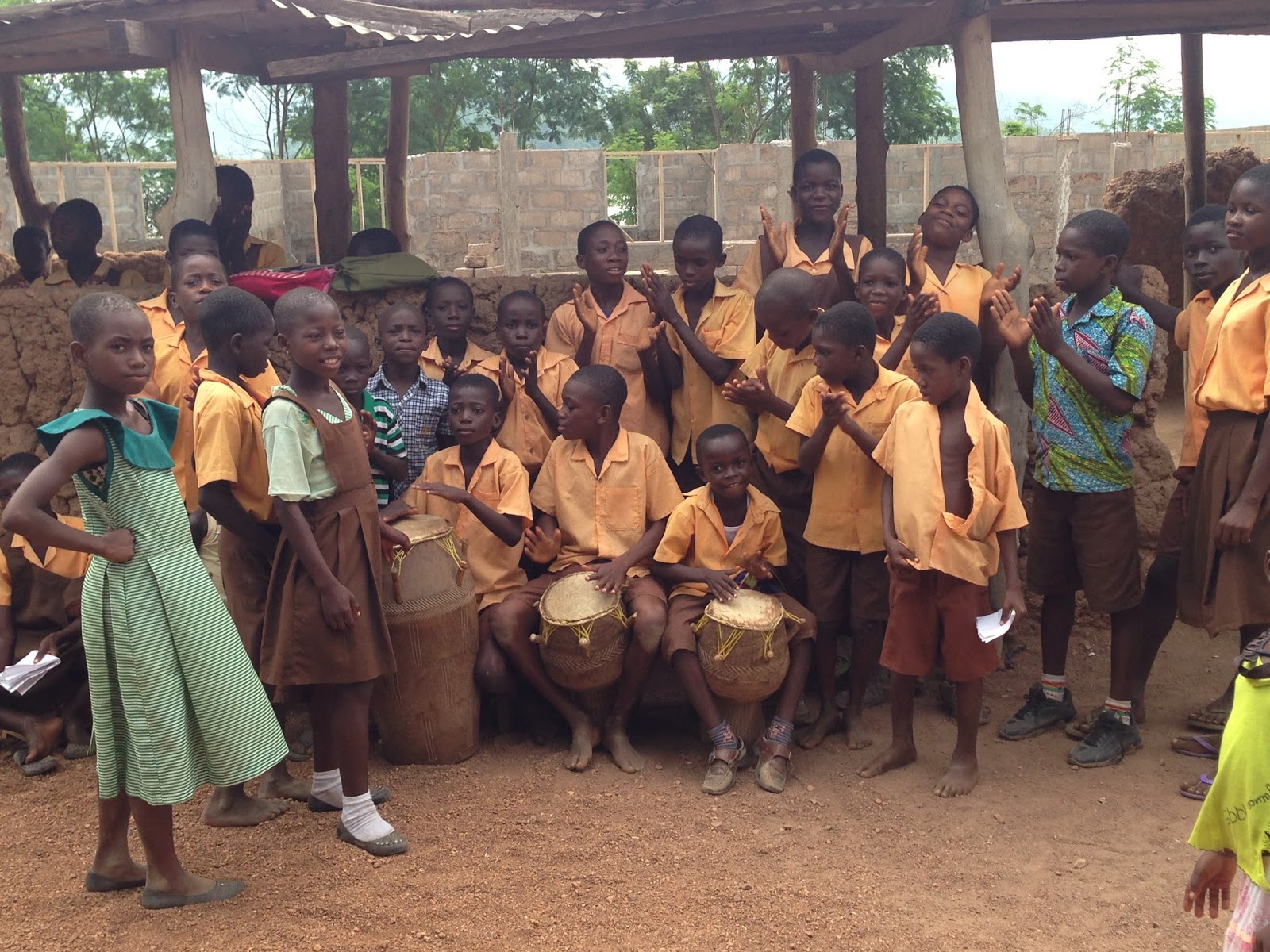We’ve spent the past three days teaching public health
education modules at primary schools in Adigbo Kofe (a village situated on Lake
Volta), Goviefe, and Peki Agbateh. The school in Adigbo Kofe was the most rural
and impoverished community we’ll be visiting this week, with most of the
classes taking place in rudimentary, open structures in a cleared area covered
with clay-colored dust. Although we were greeted with the most primitive set-up
of all the schools during our visit to Adigbo Kofe, I don’t think anyone on the
team will forget the children drumming a welcome ceremony for us during the
first class break, or the heartfelt, moving speech given by the headmaster at
the end of the day. At times, I think it’s easy to lose sight of the purpose of
the public health education week because the results aren’t as immediately
tangible or evident as the results of the clinic week, but the headmaster
reminded us in the most simple, direct way of the importance of our time with
the students. He told us that it was a day that no one at the school would ever
forget, and let us know that we ignited a passion for learning and a deep
curiosity about medicine and health in his students. I can’t think of a better
check on our collective insecurities about our worth and value to the
communities we visited, and I have been repeating the headmaster’s words and
praise to the team at every opportunity.
 |
| The drum and dance circle- the older students drummed and led the dancing and singing, and the younger students were just impossibly adorable. Video to come soon! |
We were impressed with the level of knowledge of
understanding and curiosity of the students in each of the villages, but
teaching the “Germs and First Aid” module to the P6 (sixth graders) in Peki
Agbateh today was particularly memborable. They were far too advanced in their
scientific knowledge for the simple lesson we had planned, so we adapted and modified
our lesson. Instead of asking if soap kills germs, we taught the students about
micelles, detergents, and the biochemical mechanisms employed by soaps to clear
pathogens. Instead of asking if the students knew what comes out of a wound
(blood), we discussed the circulatory system and the methods by which the body
repairs ruptured vessels. The students were engaged and participating with
gusto, and Max, Alishia, Kristina and I enjoyed the challenge of lifting our
lesson to the talent and intelligence level of our students.
 |
| Amanda, Will, and Lindsey using a mosquito net to teach the students about malaria during the "Malaria and Water Sanitation" module. |
Though our time teaching in the schools has been rewarding,
it has also been heartbreaking to witness firsthand the conditions under which
many of the students are trying to gain a useful and well-rounded education.
Many of them don’t have school supplies, shoes, or food, but I think you’d be
hard-pressed to find a more respectful, well-behaved, happy group of children in any of the American communities in which
we were all raised. It has been a challenge to keep ourselves focused on educating
the children when we’re often distracted by some of the more obvious medical
issues they face, including hydrocephalus, a poorly healed ankle fracture that
causes a 5th grade girl to walk on her ankle instead of her foot,
and innumerable open wounds, ulcers, scrapes, and cuts. We’ve done our best to
take care of the medical issues we can easily address with an alcohol prep pad,
clean water, and a band-aid, but it’s clear to all of us that we’ll have our
work cut out for us next week when we revisit the villages for clinic days.
~Shikha
No comments:
Post a Comment